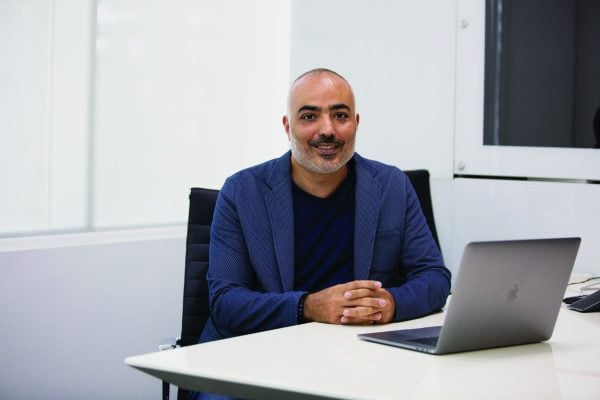By Austyn Allison

UM MENA is the second-best media agency in the world, and the best in MENA for the fourth year in a row. That is according to RECMA, the French firm that independently ranks media agencies globally. Mediabrands, the media division of Interpublic Group of Companies, which includes UM, Magna and Initiative and is part of Middle East Communications Network (MCN) in the region, topped the list of media agency groups in the MENA region. (The top-ranked agency globally was OMD Russia.)
Since 1991, RECMA has delivered regular rankings of media agencies. In its own words, “RECMA collects and analyses data from more than 70 countries. As a rating agency RECMA delivers a qualitative evaluation of media agencies based on 19 criteria in 45 countries.” The criteria include such variables as pitch wins, client retention, billings, award wins and diversity of portfolio.
Clients can see how their agencies measure up to competition and often use RECMA rankings when inviting potential partner agencies to pitch. Agencies can measure themselves against their competitors, and see where they are strong and where they need to improve. And ranking high on the RECMA tables can also be a valuable source of validation and encouragement internally.
One of the areas where UM scored best was in client retention, and Joe Nicolas, MENAT CEO of UM Worldwide, says his the RECMA ranking is reassuring for the agency’s partners. “We tend to partner for a lengthy time,” he says. “For those clients, I think [the ranking] is a proof point that they are working with the
right agency.”
UM has kept clients through a year of Covid-19, but Nicolas says that, in general, clients have not used the pandemic as an excuse to demand more for less. Rather, the last year has fostered tighter partnerships as the focus of media has changed. “We’ve all been collectively squeezed,” says Nicolas. “The difference is the scope of work has dramatically changed in that period; there’s a lot more focus on performance, a lot more focus on direct sales.”
He adds: “As an agency, it’s a year where we tried as much as we can to put our skin in the game when it comes to longer relationships with the clients we’ve been working with for 15 or 20 years. When an unprecedented crisis like this comes along, you have to work together.”
A focus on the bottom of the sales funnel has led to a “slow anxiety” about the top, though, says Nicolas. “We said OK, how can we manage 2020? But how do we ensure that we don’t cross the line to where, once it
kicks back in 2021, our readiness isn’t in a good shape.”
The agency – and its clients – have built up a lot of lower-funnel performance expertise. Now, with vaccines signalling a way out of the coronavirus crisis, UM can build on that. “There’s a real understanding that we know what the lower funnel is,” says Nicolas. “Now let’s try to figure out how the whole funnel works. Let’s perfect our understanding of the entire funnel, because everything is going to matter.”
Covid has made Nicolas’s agency both more personal and more efficient. “On the outside it looks like we’re growing apart,” he says. “But when you look at it, in reality, I think we’ve come a lot closer to each other.”
He adds: “Using the technology that we use, being connected all the time, I think it just proved to be faster at doing everything that we do, a lot more organised, a lot faster, a lot more efficient.”
The shared experience of the global crisis has got everyone to work faster, and this combined with technology as people learned how to optimise virtual meetings. They can be recorded, timings are crisper and technology also encourages tighter tracking of projects.
This comes at the expense of face-to-face meetings and can threaten the company culture that stems from a common workspace and occasional late-night blitzes. But, says Nicolas, people are more actively concerned about their colleagues. “As a leader you find yourself asking the questions, ‘Are you OK?’ ‘Are you fine?’ ‘Do you need anything?’ countless times because actually you’re worried about the wellbeing of everyone,” he says. That trickles down from a global level to each individual team member, and is something UM will build on in the future.
The industry faces challenges, says Nicolas. The main one is an outdated remuneration model. Covid-19 has broadened the scope of media agencies even wider, taking in performance as well as technology and advisory services, and yet the standard payment scheme is still a commission model, based around transactions. It is becoming increasingly anachronistic as agencies evolve further from their roots of pure media buying.
Time will tell whether the closer partnerships forged with loyal clients will allow UM and other agencies to develop pricing structures based on key business objectives, but perhaps the pandemic will give the media industry a push in this direction.
In the meantime, the region’s top-ranked media agency has a new challenge. “It’s very difficult to get where we are in a leadership position,” Nicolas says of topping the RECMA scoreboard. “But it’s a much more difficult task to stay where you are in that leadership.”
Could UM MENA take the world number one spot from OMD Russia? Nicolas says: “There are things you can and things you cannot control. What happens in Russia we can barely control, but I can control what happens in the region here and how much that makes us a good agency.”









